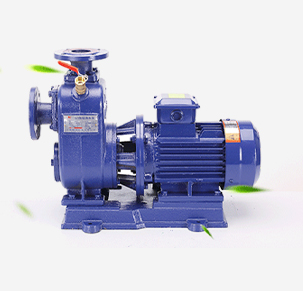English
- Afrikaans
- Albanian
- Amharic
- Arabic
- Armenian
- Azerbaijani
- Basque
- Belarusian
- Bengali
- Bosnian
- Bulgarian
- Catalan
- Cebuano
- Corsican
- Croatian
- Czech
- Danish
- Dutch
- English
- Esperanto
- Estonian
- Finnish
- French
- Frisian
- Galician
- Georgian
- German
- Greek
- Gujarati
- Haitian Creole
- hausa
- hawaiian
- Hebrew
- Hindi
- Miao
- Hungarian
- Icelandic
- igbo
- Indonesian
- irish
- Italian
- Japanese
- Javanese
- Kannada
- kazakh
- Khmer
- Rwandese
- Korean
- Kurdish
- Kyrgyz
- Lao
- Latin
- Latvian
- Lithuanian
- Luxembourgish
- Macedonian
- Malgashi
- Malay
- Malayalam
- Maltese
- Maori
- Marathi
- Mongolian
- Myanmar
- Nepali
- Norwegian
- Norwegian
- Occitan
- Pashto
- Persian
- Polish
- Portuguese
- Punjabi
- Romanian
- Russian
- Samoan
- Scottish Gaelic
- Serbian
- Sesotho
- Shona
- Sindhi
- Sinhala
- Slovak
- Slovenian
- Somali
- Spanish
- Sundanese
- Swahili
- Swedish
- Tagalog
- Tajik
- Tamil
- Tatar
- Telugu
- Thai
- Turkish
- Turkmen
- Ukrainian
- Urdu
- Uighur
- Uzbek
- Vietnamese
- Welsh
- Bantu
- Yiddish
- Yoruba
- Zulu
Telephone: +86 13120555503
Email: frank@cypump.com
Nov . 09, 2024 06:20 Back to list
Understanding Gland Seal Water in Slurry Pump Applications for Optimal Performance and Longevity
Understanding Slurry Pump Gland Seal Water Importance and Functionality
Slurry pumps are essential components in various industries, particularly in mining, construction, and waste management, where they facilitate the movement of abrasive slurries, a mixture of solids and liquids. One critical element in the operation of slurry pumps is the gland seal water system, which plays a pivotal role in ensuring the effective functioning and longevity of the pump.
What is Gland Seal Water?
Gland seal water is a crucial component used in the sealing mechanism of a slurry pump. The primary function of gland seal water is to create a barrier between the pump’s internal components and the external environment. This barrier is necessary to prevent the abrasive slurry from leaking out of the pump, which can lead to inefficiencies and damage.
The Role of Gland Seal Water in Slurry Pumps
1. Preventing Leaks The primary function of gland seal water is to prevent the leakage of the abrasive slurry through the pump's seals. Without proper sealing, the slurry can escape, leading to environmental contamination and increased wear on the pump’s components.
2. Cooling and Lubrication Slurry pumps operate under heavy loads and can generate substantial heat. Gland seal water helps cool the mechanical seals, thus preventing overheating and ensuring the proper functioning of the pump. Additionally, the water acts as a lubricant, reducing friction between moving parts.
3. Enhanced Seal Life By maintaining a constant flow of gland seal water, the life of the pump's seals can be significantly extended. This is crucial in reducing maintenance costs and downtime, which can be costly in industrial operations.
4. Controlling Pressure The pressure of the gland seal water can be controlled to manage the internal operating conditions of the pump. Proper pressure helps in maintaining the integrity of the seals and minimizes the risk of seal failure.
Benefits of Using Gland Seal Water
slurry pump gland seal water

The use of gland seal water in slurry pumps offers several benefits
- Increased Efficiency By preventing leaks and ensuring proper lubrication, gland seal water enhances the overall efficiency of the pump, leading to improved performance in transferring slurries.
- Cost Savings Effective use of gland seal water reduces the frequency of repairs and the need for replacement parts. This leads to significant cost savings over time, as operational downtime is minimized and maintenance costs are controlled.
- Environmental Protection By preventing leaks, gland seal water systems help in preserving the environment. They mitigate the risk of hazardous slurry escaping into surrounding areas, which can have devastating ecological impacts.
Challenges in Managing Gland Seal Water
While the benefits of gland seal water are clear, managing this system presents its own challenges. The quality and temperature of the seal water must be monitored closely. Impurities in the seal water can lead to seal wear and failure, while improper temperature can affect the viscosity and effectiveness of the lubricant.
Moreover, systems must be designed to ensure a consistent supply of gland seal water under varying operating conditions. Investing in proper filtration and temperature control systems can further enhance the reliability of the seal water system.
Conclusion
In summary, gland seal water is a vital component of slurry pump operations. It not only prevents leaks and extends seal life but also contributes to the overall efficiency and reliability of the pumping system. Proper management of this system is essential to maximize the benefits while minimizing the risks associated with slurry pumping. As industries continue to rely heavily on slurry pumps, understanding the importance and functionality of gland seal water will be crucial for both operational efficiency and sustainability.
-
Horizontal Split Case Pump with GPT-4 Turbo | High Efficiency
NewsAug.01,2025
-
ISG Series Pipeline Pump - Chi Yuan Pumps | High Efficiency, Durable Design
NewsAug.01,2025
-
Advanced Flue Gas Desulfurization Pump with GPT-4 Turbo | Durable & Efficient
NewsJul.31,2025
-
ISG Series Vertical Pipeline Pump - Chi Yuan Pumps | Advanced Hydraulic Design&Durable Construction
NewsJul.31,2025
-
ISG Series Vertical Pipeline Pump - Chi Yuan Pumps | Energy Efficient & Low Noise
NewsJul.31,2025
-
pipeline pump - Chi Yuan Pumps Co., LTD.|High Efficiency&Low Noise
NewsJul.31,2025










